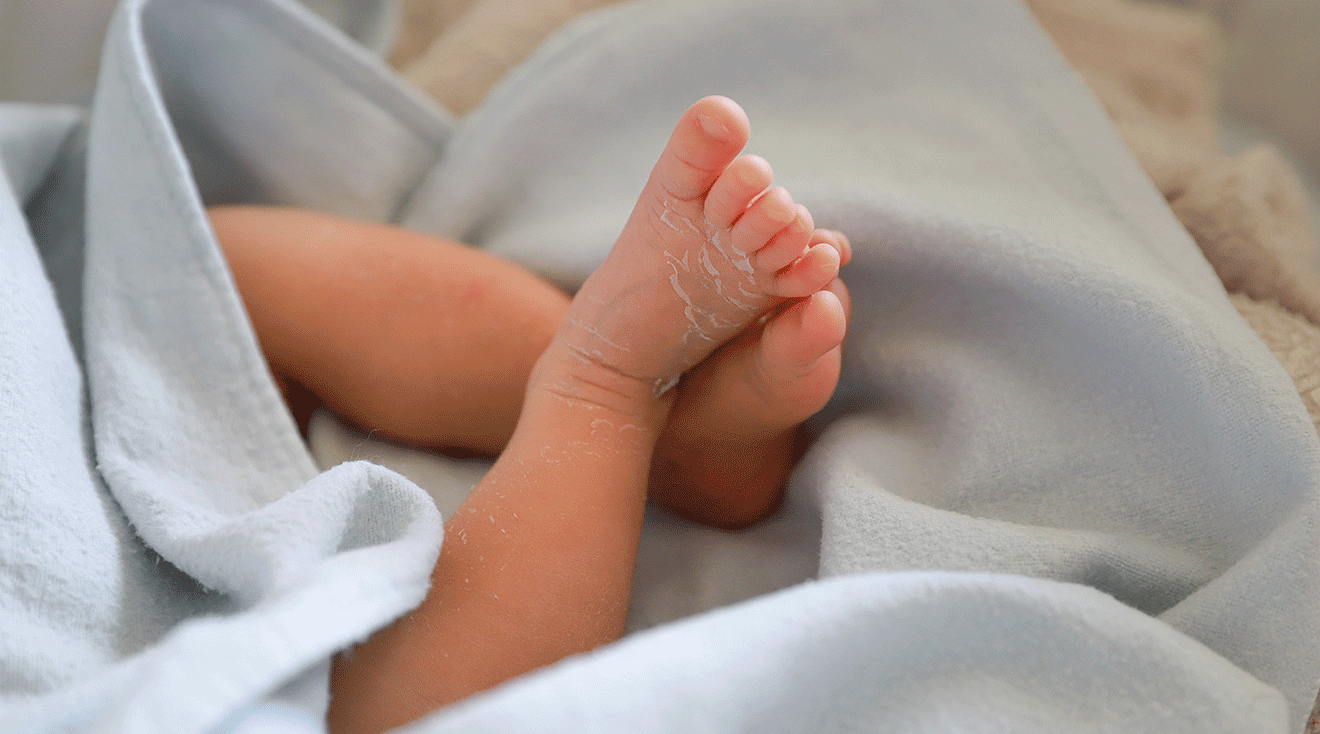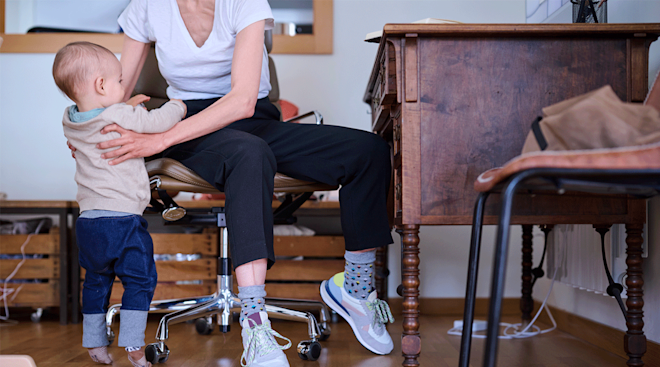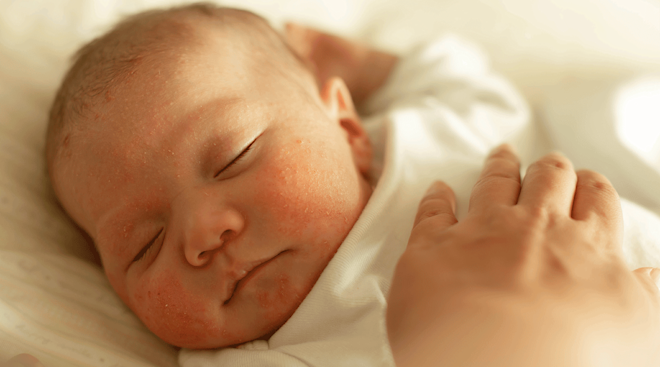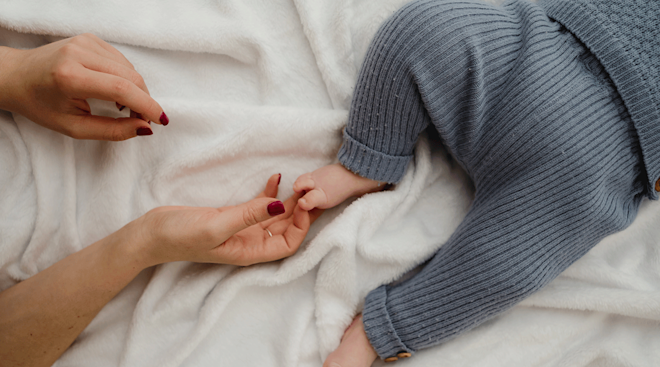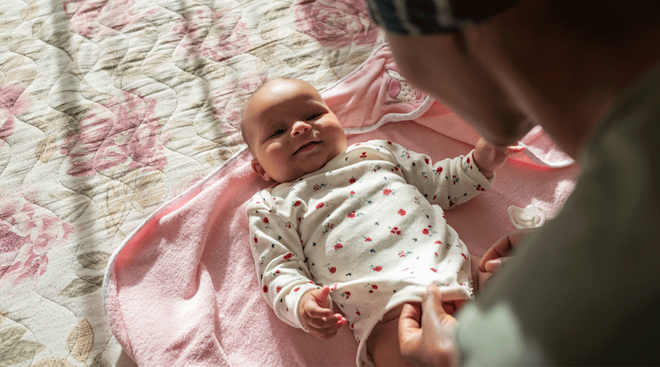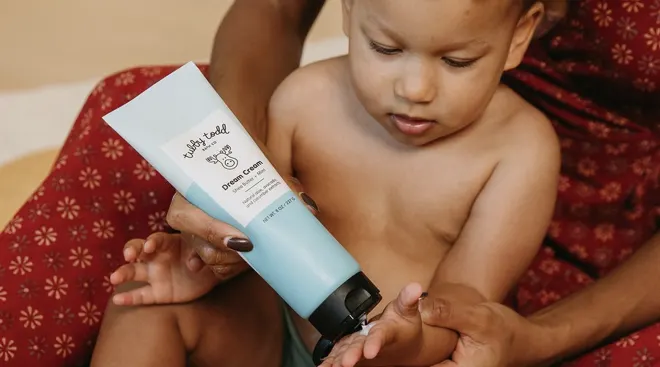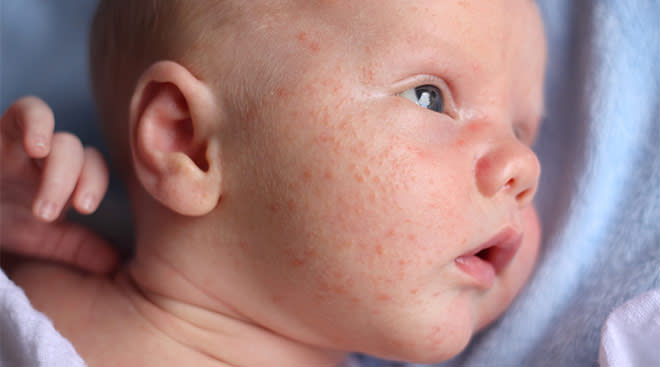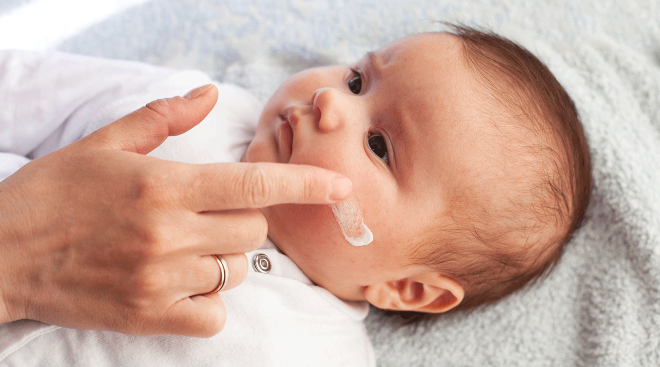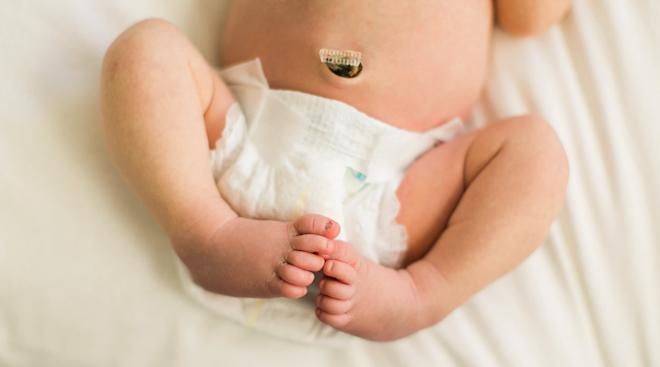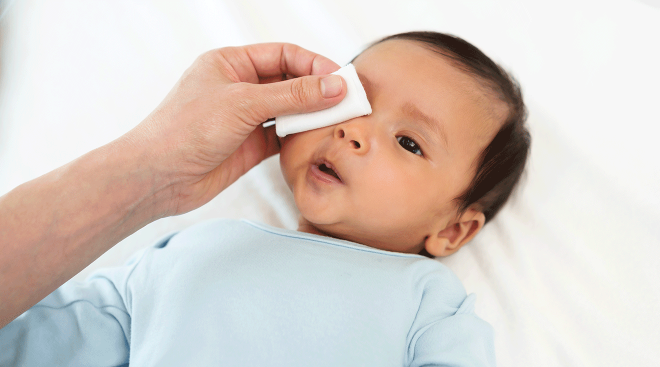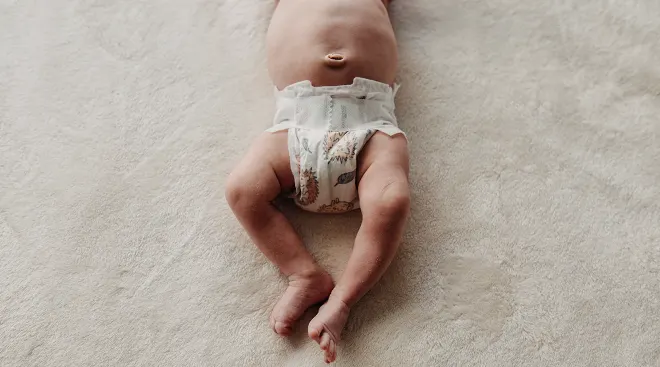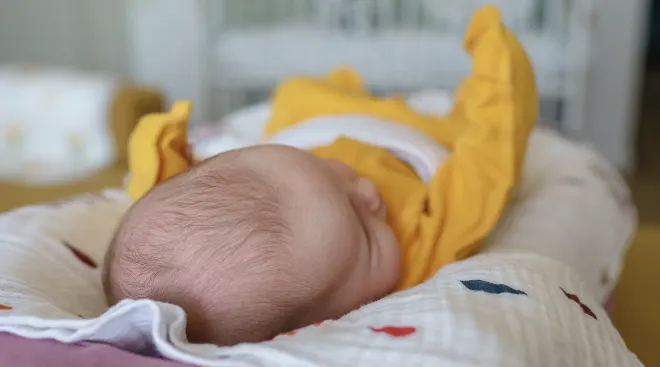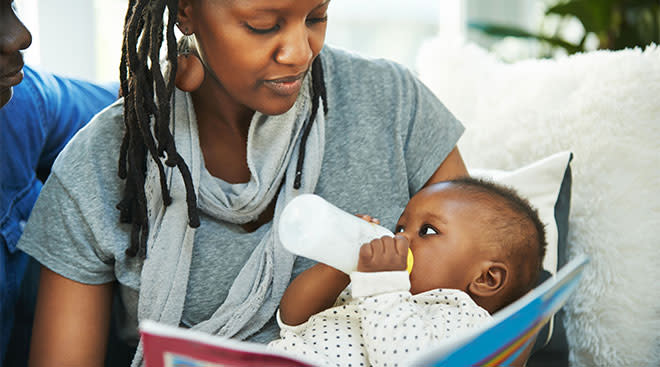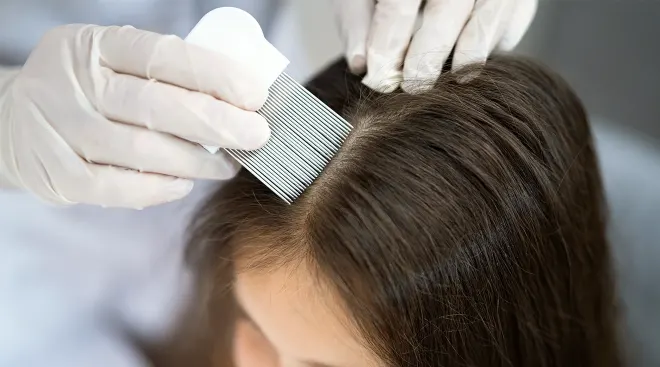How to Care for Your Newborn's Peeling Skin
Baby’s skin always looks so soft and smooth in those airbrushed “Welcome to the world!” birth announcements. But in the real world, newborn skin peeling and dryness is very common. So if you notice dry patches on baby’s skin, don’t panic or assume something’s wrong. Here, experts tell us what’s behind newborn dry skin, how to treat it at home and more.
It can be concerning to notice dry patches on baby’s skin, but doctors say it’s totally normal. “Newborns are adjusting to the outside environment after spending months in amniotic fluid, and their delicate skin can easily lose moisture,” says Gary Reschak, MD, a pediatrician at Northwestern Medicine Regional Medical Group.
Baby’s skin likely won’t be peeling and flaky for long: Reschak says the condition is most common during baby’s first month.
There are a few clues that you’re dealing with baby dry skin, says Daniel Ganjian, MD, a pediatrician at Providence Saint John’s Health Center in Santa Monica, California. They include:
- Flakiness
- Cracking
- Ashiness
- Dry, rough patches
- Slight redness
These symptoms are most common around the hands, feet and ankles, but can show up anywhere, says Liz May, MD, a pediatrician at Texas Children’s Pediatrics. “The skin may also look a bit wrinkled, and peeling can be seen along those [wrinkle] lines,” she says.
There are a few potential causes of baby dry skin. A major factor is the vernix caseosa, a waxy and oily substance that coats baby’s skin in the womb and protects, insulates and moisturizes the skin, May says. “Some of this stays on and you will see it flake off later, but some is washed off with infant bathing,” she explains. Baby skin peeling may start within a week or two after birth, she adds. “The closer an infant is born to 40 weeks or after, the sooner they’ll peel and flake,” May says.
Other factors that can lead to newborn and baby dry skin include dry weather, frequent baths, and harsh soaps or detergents, Ganjian says. “Babies are more susceptible to these issues as their skin is more sensitive and brand-new,” Reschak adds.
In older babies, May says she usually sees dry, flaking skin due to chemical irritation, like fragrances, dyes and other additives in skin-care and common household products.
While newborn and baby skin peeling is expected to some degree, certain conditions raise the risk of it happening, experts say. Those include:
- Baby eczema. Also known as atopic dermatitis, eczema is a condition that causes skin inflammation, redness and irritation, notes the National Institute of Arthritis and Musculoskeletal and Skin Diseases (NIAMS).
- Cradle cap. Cradle cap, also called seborrheic dermatitis, can cause redness, yellowish spots with greasy patches or crust, and scaly, flaky skin, according to Nemours KidsHealth. It’s most common on the scalp.
- Contact dermatitis. This reaction happens when “something that comes in contact with the skin causes inflammation,” often certain fragrances, dyes or soaps, May says.
- Ichthyosis. This is a group of skin disorders that cause dry, itchy skin that looks scaly, rough and red, according to NIAMS.
If baby’s suffering from peeling, patchy skin, experts recommend the following treatments:
- Bathe baby no more than two to three times a week
- Keep baths lukewarm and short
- Use cleaners instead of soap—soap can disrupt skin’s natural oils, May says
- Choose products that are free of fragrance, dyes and additives
- Pat baby dry after bathing and immediately apply a moisturizer (look for products labeled “ointment” or “cream”)
- Use a laundry detergent without dyes or fragrances
- Avoid dryer sheets not labeled “free,” or use dryer balls
- Use a cool-mist humidifier
- Dress baby in soft, breathable fabrics like cotton and bamboo
In some cases, baby might need more intense treatment for dry skin. Ganjian recommends reaching out to baby’s pediatrician if:
- The dryness is severe or worsens
- There are signs of infection like redness, swelling or pus
- Your little one seems particularly uncomfortable
Frequently Asked Questions
When does newborn skin peeling typically stop?
Every baby’s different, but baby dry skin typically won’t last long. “Newborn skin peeling usually stops within the first month of life, as baby's skin adjusts to the outside environment,” Reschak says. “Most peeling resolves on its own without the need for treatment.”
If baby has dry, peeling skin, know you’re not the only one dealing with this itchy situation. But if things don’t get better by the time baby’s a month old—or even seem to be getting worse—it’s time to contact your pediatrician.
Please note: The Bump and the materials and information it contains are not intended to, and do not constitute, medical or other health advice or diagnosis and should not be used as such. You should always consult with a qualified physician or health professional about your specific circumstances.
Plus, more from The Bump:
Daniel Ganjian, MD, FAAP, is a pediatrician at Providence Saint John’s Health Center in Santa Monica, California. He has a special interest in fighting childhood obesity with his pediatric expertise and as a certified personal trainer. He received his medical degree from the University of California, Irvine.
Liz May, MD, FAAP, is a pediatrician at Texas Children’s Pediatrics. She received her medical degree from The University of Texas Medical Branch.
Gary Reschak, MD, is a pediatrician at Northwestern Medicine Regional Medical Group. He earned his medical degree at St. George’s University School of Medicine in Grenada.
StatPearls, Vernix Caseosa, July 2023
National Institute of Arthritis and Musculoskeletal and Skin Diseases, Atopic Dermatitis, November 2022
Nemours KidsHealth, Cradle Cap (Seborrheic Dermatitis) in Infants, March 2023
National Institute of Arthritis and Musculoskeletal and Skin Diseases, Ichthyosis, September 2023
Learn how we ensure the accuracy of our content through our editorial and medical review process.
Navigate forward to interact with the calendar and select a date. Press the question mark key to get the keyboard shortcuts for changing dates.
































